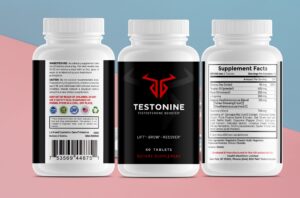Staying healthy in today’s fast-paced world can be difficult, yet essential for optimal performance, health, and well-being. Understanding how to fuel our bodies 24 hours a day for maximum performance requires understanding its needs – from balanced nutrition to meal timing for peak performance and more! With this comprehensive guide on our fingertips we hope that everyone can better meet these objectives and enjoy optimal health, performance, and well-being for life!
What Fuel Your Body 24 Hours A Day Covers.
Your body requires a balanced intake of nutrition that includes carbohydrates, proteins, fats, vitamins and minerals in order to function at its optimum. Carbs serve as primary energy sources while proteins aid repair and growth while fats supply long-lasting fuel sources – plus vitamins and minerals are vital in supporting various bodily processes.
Your Energy Needs
Energy usage by your body varies throughout the day; during periods of intensive physical or mental exertion (such as exercising or mental tasks) more calories may be burned up by active metabolic pathways than at rest – though essential functions like breathing, blood circulation and cell repair still require energy for survival. mes Planning Your Meals When the Day Begins.
Breakfast: Kickstart Your Day
Beginning each day right with a nutritious breakfast can set a strong foundation for energy levels throughout your day. Your ideal breakfast would consist of carbohydrates, proteins and healthy fats such as oatmeal with nuts and fruit or eggs on whole-grain toast – these ingredients should all come together perfectly.
Mid-Morning Snack
Eating something healthy between breakfast and lunch can keep energy levels consistent – something like fruit, yogurt or nuts are good examples.
Lunch: Sustain Your Energy
Eating lunch regularly is vital to staying productive at work and should contain lean proteins, complex carbs and vegetables – including plenty of greens such as salad with chicken breast and quinoa as an example of such meals.
Afternoon Snack
Within an afternoon snack period the same principle should apply – to maintain focus during your busy workday! An afternoon snack can help prevent late-day energy slumps. Choose something light but satisfying like hummus with vegetables or protein bars to sustain you through the afternoon hours.
Dinner
Relaxing A satisfying but light dinner should include lean proteins, veggies, and small serving of carbohydrates like sweet potatoes for instance.
Pre-Sleep Snacking
Eating right before bed may not be ideal, but a small snack could be acceptable if hunger arises. Be wary of heavy or large meals as these could interfere with restful slumber.
Hydration
Hydration Is Essential Water plays an essential part in human physiology; it aids digestion, nutrient absorption and waste elimination processes. Aim for at least eight glasses a day–more if active or living in hot climates.
Exercise and Nutrition
Proper fueling of the body for physical exercise is critical both to performance and recovery. A carb-rich snack before training may increase energy, while post-workout recovery benefits from having both protein and carbs together in your meal plan.
Sleep in Nutrition
Adequate rest is as essential to good nutrition as proper food choices are; poor rest can affect hunger hormones and lead to an increase in hunger-driven cravings for unhealthy foods, leading to an increase in appetite and subsequent increase in cravings for them. Aim for 7 – 9 hours per night as optimal results will occur. Inclusion Considerations.
Diet Restrictions and Allergies
Always pay close attention to personal dietary restrictions, allergies and intolerances when planning. From veganism and lactose intolerance to restrictions related to religious belief there are various solutions available that will meet nutritional requirements for everyone.
Balance Calories with Exercise Successful weight management begins by finding an equilibrium between caloric intake and physical activity levels, prioritizing nutritious food sources while limiting empty calorie offerings from fast food, beverages or sugary treats.
Refueling your body 24/7 requires finding a balance of nutrition, hydration and sleep. By paying attention to what works for your body and eating at optimal times you can maintain high energy levels, optimal health and overall well-being. However, what may work for one may not for another – listen carefully and adjust according to what’s right for your needs; balanced diet, regular exercise and good rest make for the foundations of a healthy lifestyle!




